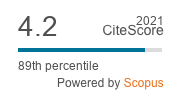Article | Open Access
Taking a Dialogical Approach to Guiding Gaming Practices in a Non-Family Context
| Views: | 141 | | | Downloads: | 32 |
Abstract: As the inclusion of youths in decision-making around their media use is increasingly normalized in the family context in the Global North, one could ask how media literacy support can be adjusted for youths in vulnerable situations, situations where their family cannot be involved in regulating their media use, such as gaming. Drawing on interviews conducted in 2021 with 13 unaccompanied refugee youths (16–25 years old) and 10 social actors working in eight organizations, this study investigates the gaming habits of such youths in Norway and the ways in which relevant social actors are involved in guiding their gaming practices. This study shows that social actors’ views on gaming vary according to their level of involvement in the youths’ housing arrangements. Whilst those working directly with such arrangements are involved in direct or indirect rule-setting for gaming practices, others struggle to find their role within this context. The youths, however, emphasize the importance of gaming in building relationships with other unaccompanied refugees, learning about the culture of socialization, and mitigating trauma. Moreover, there is a lack of a dialogical approach to welfare services’ regulation of these youths’ gaming practices. Employing such an approach could not only give these youths a voice but also expand gaming’s democratization ability beyond the family context.
Keywords: active meditation; digital care labor; gaming practices; refugee youths; social actors; video games
Published:
© Gilda Seddighi. This is an open access article distributed under the terms of the Creative Commons Attribution 4.0 license (http://creativecommons.org/licenses/by/4.0), which permits any use, distribution, and reproduction of the work without further permission provided the original author(s) and source are credited.



